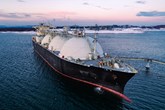Statoil announces management changes
Published by Callum O'Reilly,
Senior Editor
LNG Industry,
Statoil has announced a number of changes to its corporate structure and senior management team.
Chief Financial Officer (CFO), Torgrim Reitan, has been appointed Executive Vice President (EVP) for Development & Production USA (DPUSA), following Bill Maloney’s decision not to prolong his contract with Statoil. Hans Jakob Hegge has been appointed new EVP and CFO. Both will start in their new positions on 1 August 2015.
Irene Rummelhoff has been announced as EVP for New Energy Solutions, and Jens Økland new EVP for Marketing, Midstream & Processing (MMP). Rummelhoff and Økland will start in their new positions on 1 June 2015.
Staoil’s President and CEO, Eldar Sætre, said: “I am glad that Torgrim Reitan has accepted the opportunity to lead DPUSA, and pleased to welcome Hans Jakob Hegge, Irene Rummelhoff and Jens Økland as new members of my management team. Their deep and broad experience brings renewal to the CEC addressing our future challenges.”
The new DPUSA will focus the effort to strengthen the profitability of Statoil’s offshore assets in the Gulf of Mexico and US onshore shale oil and gas operations.
Statoil’s offshore and onshore business in Canada becomes part of the business area Development & Production International (DPI). The Canada activities add materiality and longevity in the DPI portfolio, and provides further opportunities to create synergies with offshore activities in Brazil, the UK and Tanzania.
Statoil has established a new business area for New Energy Solutions (NES). The company has aspirations to gradually complement the oil and gas portfolio with profitable renewable energy and other low-carbon energy solutions.
Edited from press release by Callum O'Reilly
Read the article online at: https://www.lngindustry.com/liquid-natural-gas/12052015/statoil-announces-management-changes-735/
You might also like
TECNIMONT (MAIRE) and Baker Hughes to collaborate on LNG initiatives globally
TECNIMONT and Baker Hughes have signed a memorandum of understanding to collaborate on prospective modularised, scalable LNG projects.



